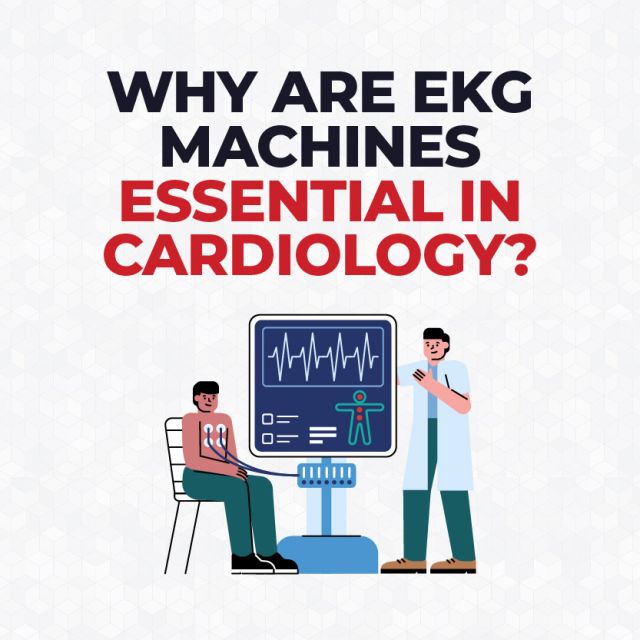8 Reasons Why Your EKG Reading Could be Abnormal

Introduction
An EKG, or electrocardiogram, is a test that records the electrical activity of the heart through electrode patches attached to your arms, chest, and legs. Should you worry about an abnormal EKG? In this article, we’ll explain which EKG abnormalities are harmless and which may signal significant heart issues.
Why Your EKG Reading is Abnormal
The average human heart beats between 60 and 100 times per minute. With an EKG machine, you can detect irregular heartbeats such as atrial fibrillation, tachycardia or bradycardia, which disrupt electrical impulses in the heart.
An EKG reading can reveal an arrhythmia, or abnormal heart rhythm, as healthy hearts generally maintain a steady beat. In addition, EKG machines measure the electrical activity of the heart. Therefore, arrhythmias are caused by dysfunction in electrical signals between different sections of the heart.
A healthy heart is approximately the size of your fist. Some medical conditions, such as high blood pressure, viral infections of cardiac muscle, advanced age, and heart failure can enlarge heart chambers. This will result in large waves on an EKG.
Electrolytes are essential minerals, such as potassium, sodium, calcium, chloride and magnesium, that have a natural positive or negative electric charge when dissolved in water. Electrolyte imbalances can disrupt the heart’s electrical activity, causing abnormal EKG patterns.
Before an EKG, you should discuss any medications you are taking with your doctor, as some medications can cause an abnormal EKG reading. Some medications can speed up heart rate, while others may slow it down. In fact, some medications that are used to help balance heart rhythm can cause abnormal rhythms to occur in some individuals.
Those with high blood pressure are more likely to have an abnormal EKG result than those with normal blood pressure because EKG tests will reveal if high blood pressure has caused any damage to the heart or blood vessels. Be sure to consult your doctor to find out what is causing your high blood pressure.
An EKG can reveal ischemia, which reduces blood flow to your heart. In other words, Angina is chest pain or discomfort when your heart can’t get enough oxygen-rich blood and is a common symptom of ischemia. Therefore, this may be brief and result in no lasting symptoms or may persist and lead to a heart attack.
An abnormal EKG reading can sometimes be the result of a serious problem, such as a heart attack. During a heart attack, blood flow in the heart is affected, which can lead to tissue damage and cell death. Meaning, damaged tissue can’t conduct electricity as well as healthy tissue, leading to an abnormal EKG reading. EKG readings can also indicate if you’ve had a mild heart attack in the past.







